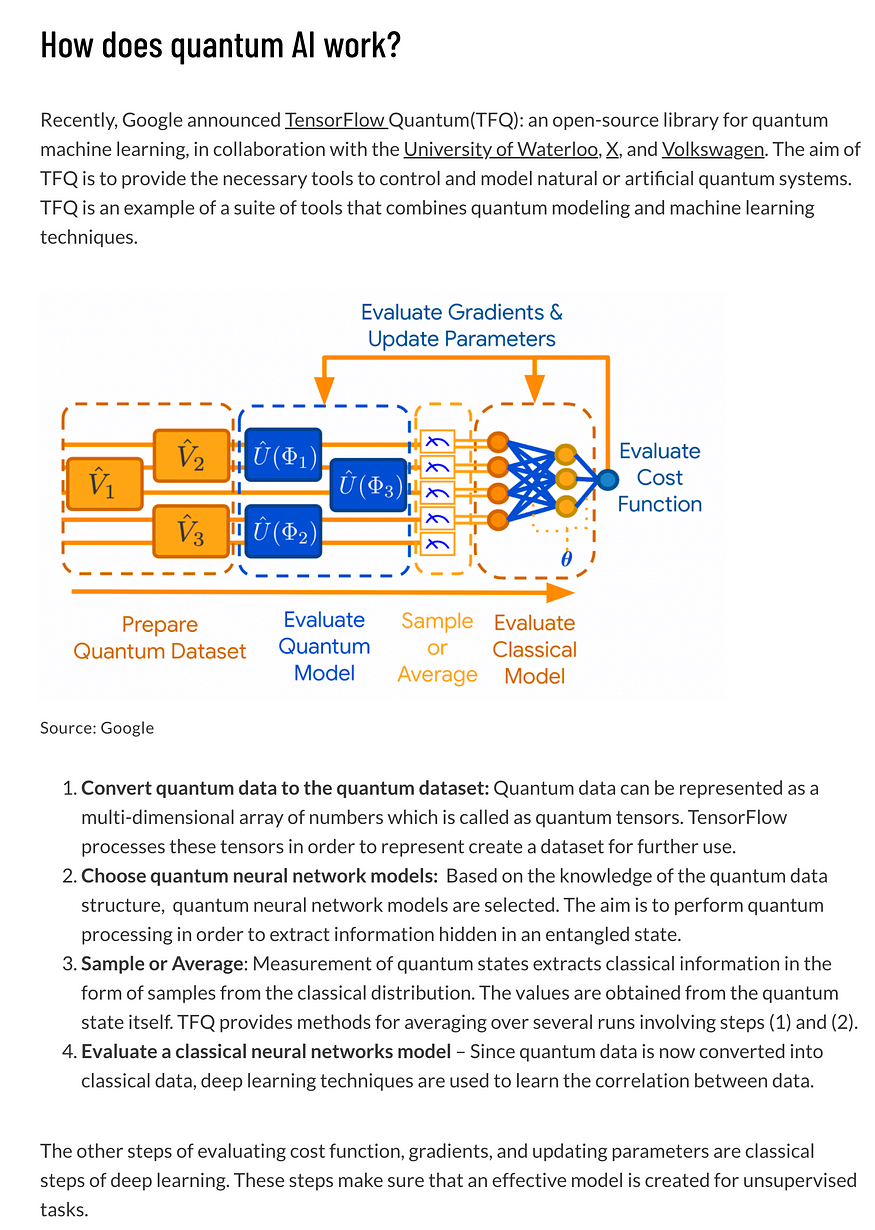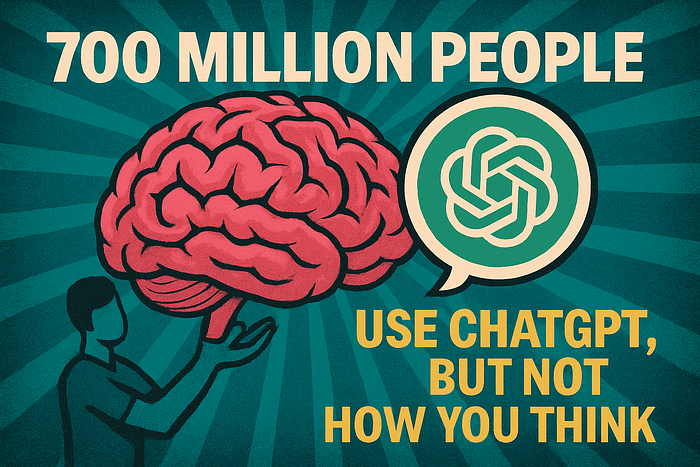
Quantum Computing & AI
Last Updated on July 26, 2023 by Editorial Team
Author(s): Surya Maddula
Originally published on Towards AI.
Quantum Computing
Images used in my articles are Properties of the Respective Organizations and are used here solely for Reference, Illustrative and Educational Purposes Only. (Images Source: Google [Aside from some images, in whose case, the source is specifically mentioned below the image])

Quantum Computing and AI are both Monstrous & Powerful technologies and AI is likely to require Quantum Computing to achieve noteworthy progress. Although AI produces functional applications with classical computers, it is limited by the computational capabilities of classical computers. Quantum Computing can provide a computation boost to AI, enabling it to tackle more complex problems and help improve AGI (Artificial General Intelligence, more on that Here)
The Quantum in “Quantum Computing” refers to the Quantum Mechanics that the system uses to calculate the Outputs. As in physics, a Quantum is the smallest most discrete unit of any physical property. It usually refers to the likes of electrons, photons, neutrinos, etc.
What is Quantum Computing?
Quantum Computing is an area of Computing focused on developing computer technology based on the principles of Quantum Theory (which explains the behavior of energy and material on the atomic and subatomic levels).
It is the study of how to use phenomena in Quantum Physics to create new ways of computing.
Computers used today can only encode information in bits that take the value of 1 or 0 — restricting their ability.
Whereas Quantum Computing uses Quantum-Bits or qubits. (A qubit is the basic unit of information in Quantum Computing). It harnesses the unique ability of subatomic particles that allows them to exist in more than one state (i.e., a 1 and a 0 at the same time).

Merits of Quantum AI
- Less Error-prone & more powerful Quantum Computing Systems.
- Widely adopted open-source modeling & training frameworks.
- Substantial & Skilled Developer Ecosystem.
- Compelling AI Applications for which Quantum Computing outperforms Classical Computing.
Why is Quantum AI Important?
Source: AI Multiple
Although AI has made rapid progress over the past decade, it has not yet overcome technological limitations. With the unique features of Quantum Computing, obstacles to achieving AGI (Artificial General Intelligence) can be eliminated.
Quantum Computing can be used for the rapid training of ML models and to create optimized algorithms. An optimized and stable AI provided by Quantum Computing can complete years of analysis in a brief time and lead to advances in technology.
Neuromorphic Cognitive Models, adaptive ML, or reasoning under uncertainty are some fundamental challenges of today’s AI. Quantum AI is one of the solutions for next-generation future AI.

Applications of Quantum Computing in AI
- Quantum Game Theory: Classical game theory is a process of modeling that is widely used in AI applications. The extension of this theory to the quantum field is the quantum game theory. It can be a promising tool for overcoming critical problems in quantum communication and the implementation of quantum artificial intelligence.
- Quantum Algorithms for Decision Problems: Classical decision problems are formulated in terms of decision trees. A method to reach the set of solutions is by creating branches from certain points. However, when each problem is too complex to be solved by constantly dividing it into two, the efficiency of this method decreases. Quantum algorithms based on Hamiltonian time evolution can solve problems represented by a number of decision trees faster than random walks.
- Quantum Algorithms for Learning: Development of quantum algorithms for quantum generalizations of classical learning models. It can provide speed-ups or other improvements in the deep learning training process. The contribution of quantum computing to classical machine learning can be achieved by quickly presenting the optimal solution set of the weights of artificial neural networks.
- Quantum Search: Most search algorithms are designed for classical computing. Classical computing outperforms humans in search problems. On the other hand, Lov Grover provided his Grover algorithm and stated that quantum computers can solve this problem even faster than classical computers. AI-powered by quantum computing can be promising for near-term applications such as encryption.
Redirections for Further Research
Introduction to Quantum Computing by Microsoft Azure.
Is Quantum Computing the future of AI? by Datanami
Quantum Computing. by Investopedia
Thanks for Reading, Happy Learning!
Join thousands of data leaders on the AI newsletter. Join over 80,000 subscribers and keep up to date with the latest developments in AI. From research to projects and ideas. If you are building an AI startup, an AI-related product, or a service, we invite you to consider becoming a sponsor.
Published via Towards AI
Take our 90+ lesson From Beginner to Advanced LLM Developer Certification: From choosing a project to deploying a working product this is the most comprehensive and practical LLM course out there!
Towards AI has published Building LLMs for Production—our 470+ page guide to mastering LLMs with practical projects and expert insights!

Discover Your Dream AI Career at Towards AI Jobs
Towards AI has built a jobs board tailored specifically to Machine Learning and Data Science Jobs and Skills. Our software searches for live AI jobs each hour, labels and categorises them and makes them easily searchable. Explore over 40,000 live jobs today with Towards AI Jobs!
Note: Content contains the views of the contributing authors and not Towards AI.
















